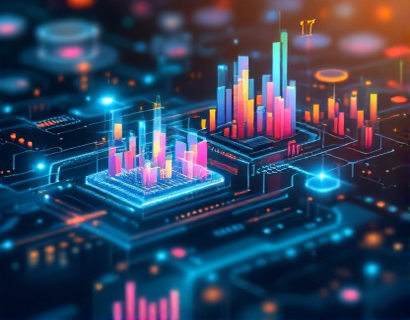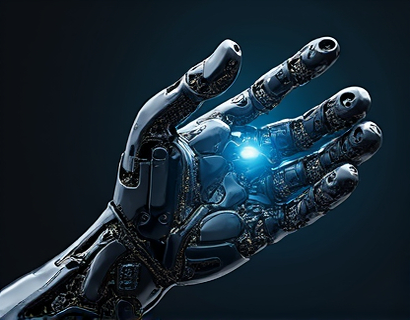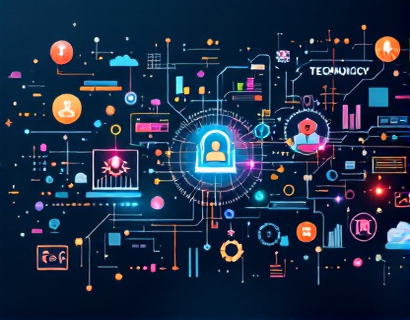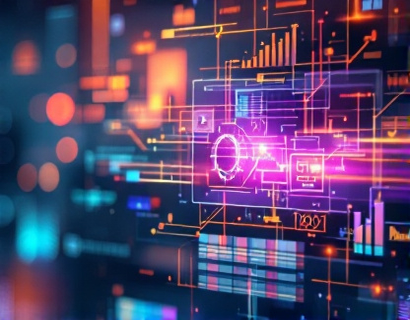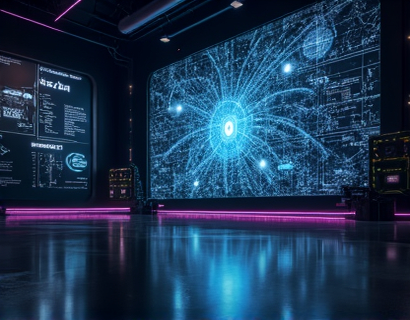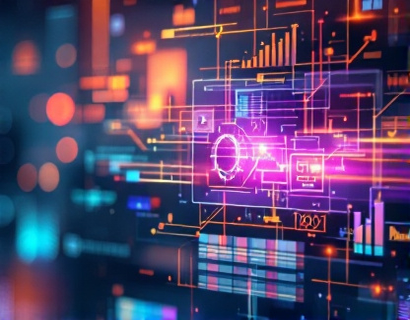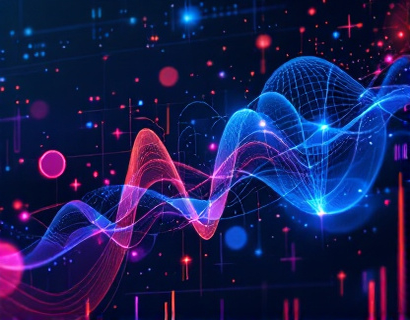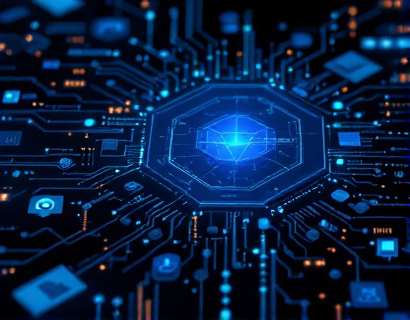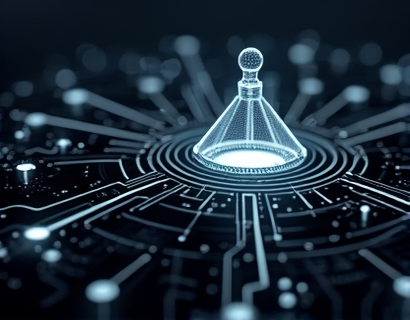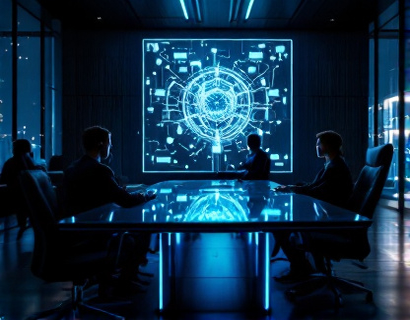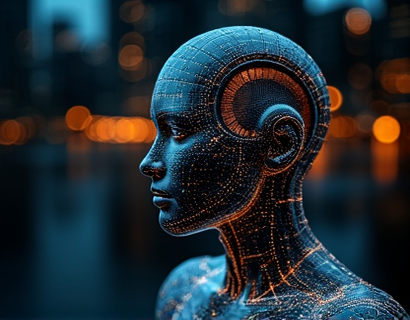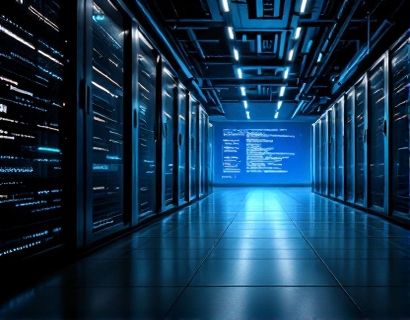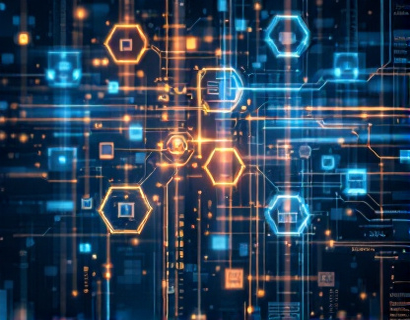Crypto and AI: Pioneering Next-Gen Digital Transformation with Innovative Solutions
The intersection of cryptocurrency and artificial intelligence is giving birth to a new era of digital transformation, redefining how we interact with and experience digital services. This fusion of technologies is not just an evolution but a revolution, promising unprecedented levels of efficiency, security, and innovation. As we delve into this exciting landscape, it's crucial to understand the fundamental components and the transformative potential they hold.
Understanding Cryptocurrency and Artificial Intelligence
Cryptocurrency, at its core, is a digital or virtual currency that uses cryptography for security and operates on a decentralized network, typically a blockchain. This decentralized nature eliminates the need for intermediaries, making transactions faster, cheaper, and more secure. On the other hand, artificial intelligence (AI) involves the simulation of human intelligence processes by machines, particularly computer systems. These processes include learning (the acquisition of information and rules for using it), reasoning (using rules to reach approximate or definite conclusions), and self-correction.
When combined, cryptocurrency and AI create a powerful synergy that can drive significant advancements in various sectors. AI's ability to analyze vast amounts of data, identify patterns, and make predictions can be harnessed to enhance the functionality and security of blockchain networks. Conversely, the transparency and immutability of blockchain can provide a robust framework for AI systems to operate, ensuring data integrity and trust.
The Role of AI in Cryptocurrency
AI plays a multifaceted role in the cryptocurrency ecosystem. One of the most significant applications is in trading and investment strategies. AI algorithms can analyze market data, news feeds, and social media sentiment to predict price movements with a level of accuracy that surpasses traditional methods. These algorithms can execute trades at optimal times, maximizing profits and minimizing risks. For instance, machine learning models can identify trends and patterns that human traders might miss, leading to more informed and profitable decisions.
Another critical area is security. Blockchain networks, while inherently secure, are not immune to attacks. AI can enhance security by detecting and mitigating threats in real-time. Anomaly detection algorithms can identify unusual patterns that may indicate a security breach, allowing for immediate action to be taken. Additionally, AI can improve the authentication process, using biometric data and behavioral analysis to ensure that only authorized users access certain parts of the network.
Blockchain's Impact on AI
While AI significantly benefits from blockchain, the reverse is also true. Blockchain technology can address some of the challenges faced by AI, particularly in data management and privacy. AI systems require vast amounts of data to function effectively, and ensuring the quality and integrity of this data is crucial. Blockchain provides a decentralized and secure way to store and share data, ensuring that it remains tamper-proof and transparent. This is particularly important in industries where data privacy is paramount, such as healthcare and finance.
Smart contracts, a key feature of blockchain, can automate and enforce the execution of AI-driven processes. For example, in supply chain management, AI can predict demand and optimize inventory levels, while smart contracts can automatically trigger transactions when predefined conditions are met. This not only streamlines operations but also reduces the risk of human error and fraud.
Decentralized Finance (DeFi) and AI
Decentralized Finance (DeFi) is a rapidly growing sector that leverages blockchain to create financial services without traditional intermediaries. AI can enhance DeFi platforms by providing more sophisticated risk management tools, personalized financial advice, and automated trading bots. For instance, AI-driven algorithms can assess the creditworthiness of users in a decentralized manner, using data from various sources to make more accurate lending decisions. This can democratize access to financial services, making them available to a broader audience.
Moreover, AI can improve the user experience on DeFi platforms by offering real-time insights and recommendations. Natural Language Processing (NLP) can be used to analyze user queries and provide relevant information, making complex financial concepts more accessible. This fusion of AI and DeFi is paving the way for a more inclusive and efficient financial system.
Supply Chain Optimization with Crypto and AI
The supply chain industry stands to gain immensely from the integration of cryptocurrency and AI. AI can optimize various aspects of the supply chain, from production planning to logistics and distribution. By analyzing data from sensors, IoT devices, and other sources, AI can predict maintenance needs, optimize routes, and reduce waste. This not only improves efficiency but also reduces costs and environmental impact.
Cryptocurrency can facilitate seamless and secure transactions within the supply chain. Smart contracts can automate payments between suppliers and manufacturers based on predefined conditions, ensuring that transactions are executed promptly and transparently. This reduces the need for intermediaries and speeds up the entire process. Additionally, the use of stablecoins can mitigate the volatility associated with traditional cryptocurrencies, making them a more reliable medium of exchange in this context.
Enhancing User Experiences through AI and Crypto
The combination of AI and cryptocurrency is not only transforming backend processes but also enhancing user experiences. For instance, AI-powered chatbots can provide 24/7 customer support, handling queries and resolving issues in real-time. These chatbots can understand natural language and provide personalized recommendations based on user behavior and preferences. This level of interaction not only improves customer satisfaction but also reduces the workload on human support teams.
Cryptocurrency can also play a role in rewarding users for their engagement and contributions. For example, loyalty programs can be implemented using tokens that users earn by completing tasks or providing feedback. These tokens can be redeemed for goods and services, creating a more engaging and incentivized user experience. AI can optimize these programs by analyzing user behavior and adjusting rewards to maximize participation and satisfaction.
Challenges and Considerations
Despite the numerous benefits, the integration of AI and cryptocurrency is not without challenges. One of the primary concerns is regulatory compliance. The decentralized nature of blockchain and the global reach of cryptocurrencies make them a complex regulatory landscape to navigate. Both AI and cryptocurrency projects must adhere to local and international regulations, which can vary significantly. Ensuring compliance while maintaining innovation is a delicate balance that requires careful planning and expertise.
Another challenge is the technical complexity involved in developing and maintaining these systems. Integrating AI with blockchain requires a deep understanding of both technologies, as well as the ability to address issues such as scalability, interoperability, and security. Developers must stay abreast of the latest advancements and best practices to create robust and efficient solutions.
Future Prospects
The future of crypto and AI is bright, with numerous opportunities for innovation and growth. As technology continues to advance, we can expect to see more sophisticated AI algorithms that can process and analyze data at unprecedented speeds. This will further enhance the capabilities of blockchain networks, making them more efficient and secure. The convergence of these technologies is likely to lead to the development of new applications and services that we can only begin to imagine today.
In the realm of DeFi, AI-driven platforms may offer more personalized and adaptive financial products, catering to the unique needs of individual users. In supply chain management, AI and blockchain could create fully transparent and autonomous systems, reducing human intervention and increasing reliability. The potential for cross-industry applications is vast, from healthcare to education, where AI and cryptocurrency can provide secure, efficient, and user-centric solutions.
In conclusion, the blend of cryptocurrency and AI is not just a technological trend but a transformative force that is reshaping the digital landscape. By leveraging the strengths of both technologies, we can create a more secure, efficient, and innovative future. For tech enthusiasts and professionals, this is an exciting time to explore and contribute to this evolving field.






